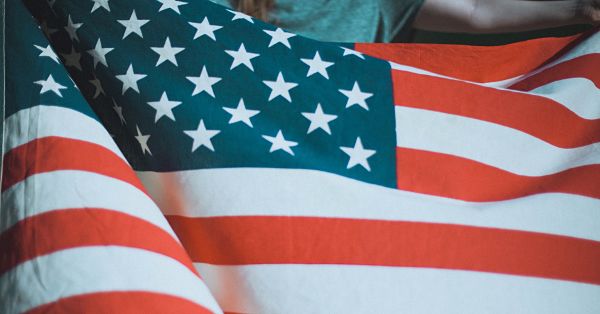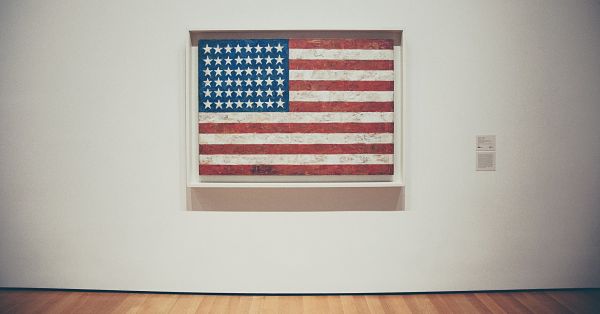 August 6 & August 7, 1787 (Click links to read Madison’s notes)
August 6 & August 7, 1787 (Click links to read Madison’s notes)
Summary
On August 6, 1787, the delegates reassembled but then promptly adjourned to read the draft of the Constitution prepared by the Committee of Detail. On August 7, they agreed to the Preamble, and Articles I and II. They also took up Article III and IV on the Legislature. Most of Article III was passed with a proposal defeated to amend Article IV with more qualifications on electors.
Influences on the Delegates
Massachusett’s delegate Gorham thought it necessary to set the time of meeting for the legislature. He earlier had made reference to MA’s procedures.
Mr. GORHAM. If the time be not fixed by the Constitution, disputes will arise in the Legislature; and the States will be at a loss to adjust thereto the times of their elections. In the New England States, the annual time of meeting had been long fixed by their charters and constitutions, and no inconvenience had resulted. He thought it necessary that there should be one meeting at least every year, as a check on the executive department.
Roger Sherman agreed and invoked the states and England in the positive.
Mr. SHERMAN was decided for fixing the time as well as for frequent meetings of the legislative body. Disputes and difficulties will arise between the two houses, and between both and the States, if the time be changeable. Frequent meetings of parliament were required at the Revolution in England, as an essential safeguard of liberty. So also are annual meetings in most of the American charters and constitutions. There will be business enough to require it. The western country, and the great extent and varying state of our affairs in general, will supply objects.
Gouverneur Morris’s words illustrate just how practical some Constitutional principles were.
Mr. GOUVERNEUR MORRIS moved to strike out “December,” and insert “May.” It might frequently happen that our measures ought to be influenced by those in Europe, which were generally planned during the winter, and of which intelligence would arrive in the spring.
Slow communication nearly influenced the Constitutionally set meeting times.
Should Those Who Don’t Own Land Vote?
Morris wanted to make suffrage related to property ownership:
Mr. GOUVERNEUR MORRIS moved to strike out the last member of the section, beginning with the words, “qualifications of Electors,” in order that some other provision might be substituted which would restrain the right of suffrage to freeholders.
He had to defend himself against significant opposition from those who invoke the policies of states.
Mr. GOUVERNEUR MORRIS. Such a hardship would be neither great nor novel. The people are accustomed to it, and not dissatisfied with it, in several of the States. In some, the qualifications are different for the choice of the Governor and of the Representatives; in others, for different houses of the Legislature. Another objection against the clause, as it stands, is, that it makes the qualifications of the National Legislature depend on the will of the States, which he thought not proper.
Mr. ELLSWORTH thought the qualifications of the electors stood on the most proper footing. The right of suffrage was a tender point, and strongly guarded by most of the State Constitutions. The people will not readily subscribe to the National Constitution if it should subject them to be disfranchised. The States are the best judges of the circumstances and temper of their own people.
Colonel MASON. The force of habit is certainly not attended to by those gentlemen who wish for innovations on this point. Eight or nine States have extended the right of suffrage beyond the freeholders. What will the people there say, if they should be disfranchised? A power to alter the qualifications would be a dangerous power in the hands of the Legislature.
One delegate invoked the negative experience of Holland.
Mr. BUTLER. There is no right of which the people are more jealous than that of suffrage. Abridgments of it tend to the same revolution as in Holland, where they have at length thrown all power into the hands of the Senates, who fill up vacancies themselves, and form a rank aristocracy.
Morris retorted to charges that an aristocracy might develop with this startling line of thinking.
Mr. GOUVERNEUR MORRIS. He had long learned not to be the dupe of words. The sound of aristocracy, therefore, had no effect upon him. It was the thing, not the name, to which he was opposed; and one of his principal objections to the Constitution, as it is now before us, is, that it threatens the country with an aristocracy. The aristocracy will grow out of the House of Representatives. Give the votes to people who have no property, and they will sell them to the rich, who will be able to buy them. We should not confine our attention to the present moment. The time is not distant when this country will abound with mechanics and manufacturers, who will receive their bread from their employers. Will such men be the secure and faithful guardians of liberty? Will they be the impregnable barrier against aristocracy? He was as little duped by the association of the words, “taxation and representation.” The man who does not give his vote freely, is not represented. It is the man who dictates the vote. Children do not vote. Why? Because they want prudence; because they have no will of their own. The ignorant and the dependent can be as little trusted with the public interest. He did not conceive the difficulty of defining “freeholders” to be insuperable. Still less that the restriction could be unpopular. Nine tenths of the people are at present freeholders, and these will certainly be pleased with it. As to merchants, &c., if they have wealth, and value the right, they can acquire it. If not, they don’t deserve it.
Morris wanted to abridge the natural rights of humans by a qualification which did not eventually pass. What biblical principle was he relying on? What biblical principle did the delegates use to vote against this Christian delegates’ ideas? Which version of Christianity eventually influenced the votes? The idea of a biblical Constitution or delegates inserting biblical principles into every clause breaks down rather quickly when we pay close attention to the ideas proposed and defeated.
Virginia’s George Mason explicitly called out the influences on the discussion as being British in origin.
Colonel MASON. We all feel too strongly the remains of ancient prejudices, and view things too much through a British medium. A freehold is the qualification in England, and hence it is imagined to be the only proper one. The true idea, in his opinion, was, that every man having evidence of attachment to, and permanent common interest with, the society, ought to share in all its rights and privileges. Was this qualification restrained to freeholders? Does no other kind of property but land evidence a common interest in the proprietor? Does nothing besides property mark a permanent attachment? Ought the merchant, the moneyed man, the parent of a number of children whose fortunes are to be pursued in his own country, to be viewed as suspicious characters, and unworthy to be trusted with the common rights of their fellow citizens?
Although Madison’s disagreed with Mason’s view of the British influence, he deferred to the current trend in the states to make suffrage a broader right than via property ownership alone.
Mr. MADISON. The right of suffrage is certainly one of the fundamental articles of republican government, and ought not to be left to be regulated by the Legislature. A gradual abridgment of this right has been the mode in which aristocracies have been built on the ruins of popular forms. Whether the constitutional qualification ought to be a freehold, would with him depend much on the probable reception such a change would meet with in the States where the right was now exercised by every description of people. In several of the States a freehold was now the qualification. Viewing the subject in its merits alone, the freeholders of the country would be the safest depositories of republican liberty. In future times, a great majority of the people will not only be without landed, but any other sort of property. These will either combine, under the influence of their common situation, — in which case the rights of property and the public liberty will not be secure in their hands, — or, what is more probable, they will become the tools of opulence and ambition; in which case, there will be equal danger on another side. The example of England has been misconceived (by Colonel MASON.) A very small proportion of the Representatives are there chosen by freeholders. The greatest part are chosen by the cities and boroughs, in many of which the qualification of suffrage is as low as it is in any one of the United States; and it was in the boroughs and cities, rather than the counties, that bribery most prevailed and the influence of the Crown on elections was most dangerously exerted.
Franklin returned to a negative example from Britain’s restrictions on voting to make his point in favor of relaxing the qualifications.
Doctor FRANKLIN. It is of great consequence that we should not depress the virtue and public spirit of our common people; of which they displayed a great deal during the war, and which contributed principally to the favorable issue of it. He related the honorable refusal of the American seamen, who were carried in great numbers into the British prisons during the war, to redeem themselves from misery or to seek their fortunes, by entering on board the ships of the enemies to their country; contrasting their patriotism with a contemporary instance, in which the British seamen made prisoners by the Americans readily entered on the ships of the latter, on being promised a share of the prizes that might be made out of their own country. This proceeded, he said, from the different manner in which the common people were treated in America and Great Britain. He did not think that the elected had any right in any case, to narrow the privileges of the electors. He quoted, as arbitrary, the British statute setting forth the danger of tumultuous meetings, and, under that pretext, narrowing the right of suffrage to persons having freeholds of a certain value; observing that this statute was soon followed by another, under the succeeding parliament, subjecting the people who had no votes to peculiar labors and hardships. He was persuaded, also, that such a restriction as was proposed would give great uneasiness in the populous States. The sons of a substantial farmer, not being themselves freeholders, would not be pleased at being disfranchised, and there are a great many persons of that description.
Finally, Maryland’s John Mercer spoke in favor of land ownership as a qualification for suffrage by noting how people in cities vote in a bloc while the countrymen disperse their votes among many candidates:
Mr. MERCER. The Constitution is objectionable in many points, but in none more than the present. He objected to the footing on which the qualification was put, but particularly to the mode of election by the people. The people cannot know and judge of the characters of candidates. The worst possible choice will be made. He quoted the case of the Senate in Virginia, as an example in point. The people in towns can unite their votes in favor of one favorite; and by that means always prevail over the people of the country; who being dispersed, will scatter their votes among a variety of candidates.
And we see that today, do we not? However, the delegates voted decisively not to make land ownership a limiting qualification. Women, slaves and native people had no suffrage but those discriminations were not even in their minds.
 August 9, 1787 (click the link to read Madison’s notes on the day)
August 9, 1787 (click the link to read Madison’s notes on the day)
